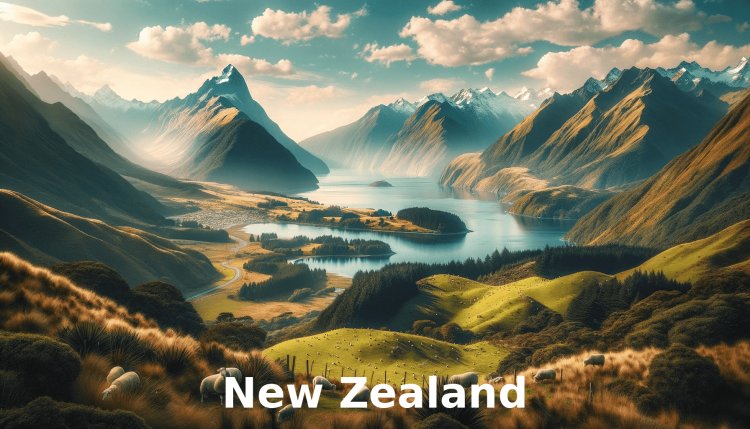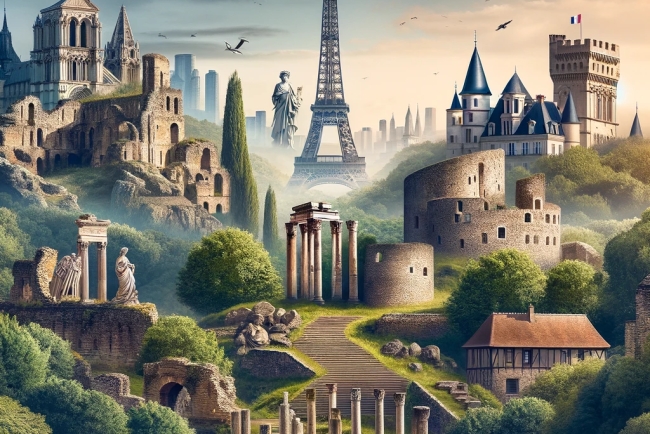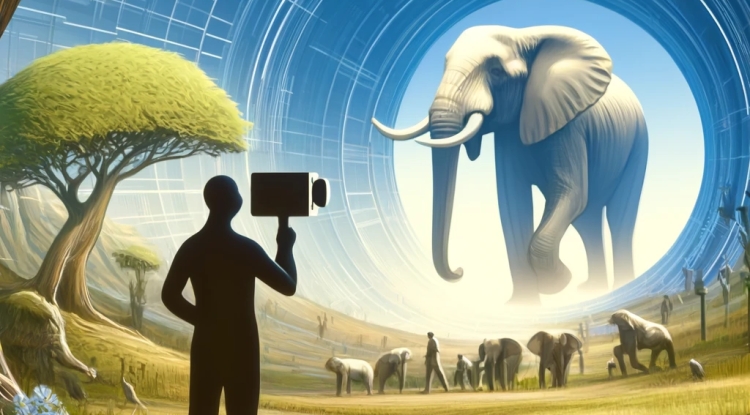New Zealand A Tapestry of Nature, Culture, and History
Discover New Zealand: An island nation rich in breathtaking landscapes, Maori culture, and a unique blend of history and adventure. From the mystical fjords of Milford Sound to the vibrant traditions of the Maori, New Zealand offers a journey through time, nature, and the spirit of exploration.

New Zealand is famed for hosting some of the world’s most breathtaking natural wonders. Located in the South Pacific, this island nation comprises two main islands, the North and South, along with numerous smaller islands. Renowned for its unique landscapes, rich Maori culture, and adventure-filled activities, New Zealand is a must-visit destination for travelers.
Natural Beauty
New Zealand is celebrated for its stunning natural beauty. Milford Sound, situated in Fiordland National Park, mesmerizes with its striking fjords, towering mountains, and deep blue waters. For hiking enthusiasts, the Tongariro Alpine Crossing offers an unforgettable experience with its volcanic landscapes and turquoise lakes. Additionally, the Waitomo Glowworm Caves create a captivating atmosphere with hundreds of thousands of glowworms lighting up the darkness.
Adventure Sports
For adrenaline seekers, New Zealand is a paradise filled with bungee jumping, skydiving, rafting, and many more activities. Queenstown is regarded as the adventure sports capital of the world, drawing thousands of adventure enthusiasts each year. In Rotorua, challenging bike trails and geothermal activities await visitors.
Maori Culture
The rich culture and history of New Zealand's indigenous people, the Maori, deeply influence the fabric of the country. The preservation and celebration of Maori language and traditions are an essential part of New Zealand's cultural landscape. Visitors can witness this rich culture by arranging a visit to a marae (Maori community center), watching haka performances, or tasting the traditional Maori meal, hangi.
Wildlife and Conservation Areas
New Zealand is home to unique wildlife species. The kiwi, the country’s iconic bird, is found only in New Zealand. Numerous conservation areas and wildlife sanctuaries across the country work towards the protection and rehabilitation of these species. Swimming with dolphins near Akaroa or observing yellow-eyed penguins on the Otago Peninsula also offer unique experiences for nature lovers.
Journey
New Zealand offers something for every kind of traveler: from nature enthusiasts and adventure seekers to culture aficionados and wildlife enthusiasts. With its distinct beauty and friendly people, New Zealand promises an experience you will never forget.
The Formation of New Zealand
The unique nature, rich cultural heritage, and dynamic history of New Zealand narrate a journey from the discovery of the islands to the present day. This story begins around the year 1300, with the arrival of brave Polynesian navigators from the distant corners of the Pacific Ocean. These navigators, who would later be known as the Maori, named the islands "Aotearoa," meaning "Land of the Long White Cloud."
In 1642, Dutch explorer Abel Tasman became the first European to set foot on the islands, but his attempts to explore and colonize were unsuccessful due to conflicts with the Maori people. The visit of British explorer James Cook in 1769 brought New Zealand back into international focus. Cook mapped the islands and claimed them on behalf of England.
The signing of the Treaty of Waitangi in 1840 marked a turning point, recognizing Maori land rights and declaring New Zealand a part of the British Empire. However, disagreements over the treaty's implementation led to prolonged conflicts between Maori and European settlers.
From the mid-20th century, New Zealand took a leading role in social justice, equal rights, and environmental sustainability. The recognition of women's suffrage in 1893 underscores the nation's commitment to social progress. Moreover, following World War II, New Zealand began to play a more active role in international relations, becoming one of the founding members of the United Nations and shaping its own foreign policy.
The 1970s saw significant progress in Maori activism and rights, including efforts to better implement the Treaty of Waitangi and preserve Maori cultural heritage. The recognition of the Maori language as an official language and the cultural revival are notable achievements of this period.
New Zealand has taken significant steps in environmental protection and sustainability, enacting strict laws to conserve natural resources and combat climate change, and investing in renewable energy sources.
Today, New Zealand presents examples of unity in diversity and social harmony, part of a global community. The country, inhabited by both the indigenous Maori and people of diverse origins, stands out for its cultural richness, commitment to social justice, and environmental awareness. New Zealand's story is one of overcoming challenges, respecting cultural heritage, and living in harmony with nature. This island nation serves as an inspiring example of learning from the past to guide the future.
Maori Exploration and Settlement
The first inhabitants of New Zealand were Polynesian navigators who traversed the vast waters of the Pacific Ocean to reach the islands in the 13th and 14th centuries. These brave explorers and settlers named New Zealand "Aotearoa" and developed a rich culture and society there. The Maori people, as the original inhabitants of the islands, hold a special place among the founders of New Zealand. Their culture, language, traditions, and history are fundamental elements of New Zealand's identity.
European Discoveries and Colonization
In 1642, Dutch explorer Abel Tasman became the first European to "discover" New Zealand for Europeans, but the real transformation began with James Cook's visits to the islands in 1769 and the following years. Cook mapped New Zealand and officially claimed the islands for the British Empire. This marked the beginning of Europe's influence over New Zealand and led to British settlement in the subsequent years.
The Treaty of Waitangi and the Foundations of Modern New Zealand
The foundations of the modern state of New Zealand were laid with the signing of the Treaty of Waitangi in 1840. This treaty, between Maori chiefs and representatives of the British Royal Navy, recognized Maori sovereignty and land rights while paving the way for New Zealand to become part of the United Kingdom. The Treaty of Waitangi is considered a shared heritage of both Maori and European-descended New Zealanders and is seen as the founding document of modern New Zealand.
Conclusion
Attributing New Zealand's "founder" to a specific individual is challenging, as the country's history is shaped by the interactions and contributions of many different people and groups. The exploration and settlement by the Maori, European exploration and colonization efforts, and the signing of the Treaty of Waitangi are pivotal milestones that played key roles in shaping New Zealand into its present form. This history highlights a rich and complex story of unity in diversity, respect for cultural heritage, and a desire to move toward a common future.
What's Your Reaction?




















